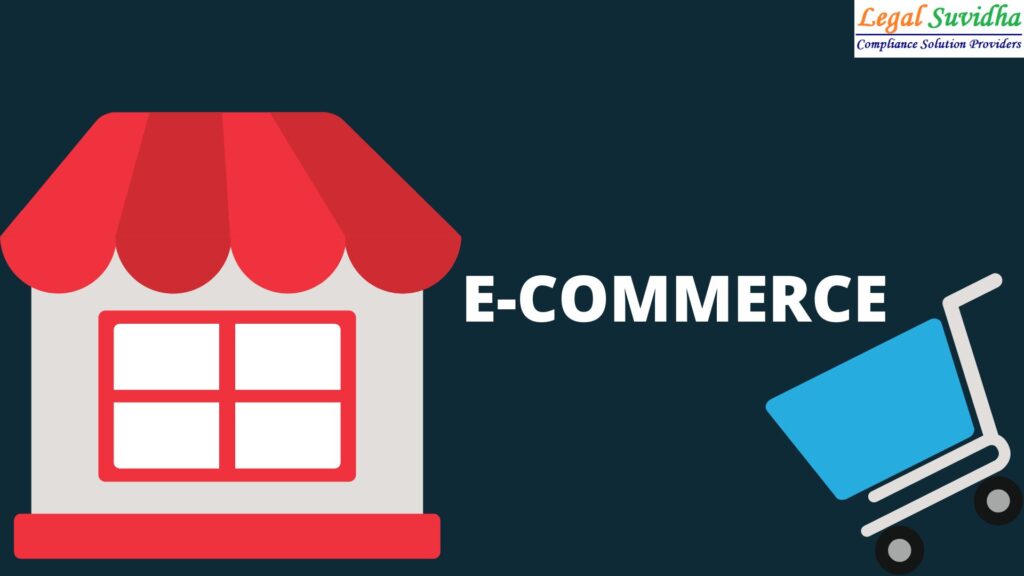AMENDMENTS OF E-COMMERCE will come into effect from January 1, 2022.These amendments are aimed at addressing various issues related to e-commerce, such as consumer protection, data localization, and compliance with foreign exchange regulations.
RECENT AMENDMENTS ON E-COMMERCE EFFECTIVE FROM JANUARY 2022
What is E- commerce?
Electronic Commerce has been defined in Sec. 2(44) of the CGST Act, 2017 to mean the supply of goods or services or both, including digital products over digital or electronic network.
Who is an E- commerce operator?
Electronic Commerce Operator has been defined in Sec. 2(45) of the CGST Act, 2017 to mean any person who owns, operates or manages digital or electronic facility or platform for electronic commerce.
Will an e-commerce operator be liable to pay tax in respect of supply of goods or services made through it, instead of actual supplier?
Yes, but only in case of services notified under Sec. 9(5) of the CGST Act, 2017. In such cases tax shall be paid by the electronic commerce operator if such services are supplied through it and all the provisions of the Act shall apply to such electronic commerce operator as if he is the supplier liable to pay tax in relation to the supply of such services.
What is Tax Collection at Source (TCS)?
The e-commerce operator is required to collect an amount at the rate of 1% i.e., (0.5% CGST + 0.5% SGST) of the net value of taxable supplies made through it, where the consideration with respect to such supplies is to be collected by such operator. The amount so collected is called as Tax Collection at Source (TCS).
Changes in GST impacting On E-Commerce Operators i.e Zomato, Swiggy etc.
On September 17, it was decided at the Goods and Services Tax Council meeting that e-commerce operators be made liable to pay tax on services provided through them namely transport of passengers, by any type of motor vehicles- restaurant services provided, with some exceptions.
This will become effective January 1, 2022, said a statement issued by the Finance Ministry after the GST Council meeting.
You might already be aware that the government has given a directive via issued NN. 17/2021- Central Tax (Rate) dated 18th November 2021 wherein E-commerce platforms (“ECO”) like Zomato, Swiggy are liable to pay tax on the restaurant services effective 1st January, 2022.
The liability to pay taxes on the non-restaurant services as per this directive still lies with the restaurants themselves.
Further Circular No. 167/23/2021-GST dated 17.11.2021 issued for clarification regarding modalities of compliance to the GST laws in respect of supply of restaurant service through ECO.
ECO is now made liable to pay GST on “restaurant services” provided through the e-commerce platform.
This change is not applicable for restaurant services provided from a premise with declared tariff of Rs. 7,500/- or above per day.
Swiggy, Zomato qualifies etc is qualify as an “e-commerce operator” under Section 2(45) of CGST Act, 2017.
As ‘restaurant service’ has been notified under section 9(5) of the CGST Act, 2017, the ECO like Zomato, Swiggy shall be liable to pay GST on restaurant services provided, with effect from the 1st January, 2022, through ECO.
Accordingly, the ECOs will no longer be required to collect TCS and file GSTR 8 in respect of restaurant services on which it pays tax in terms of section 9(5).
Applicability of Input Tax Credit/ Reverse charge for ECO:
Since ECO are not the recipient of restaurant service supplied through them and therefore, they are not input services to the ECO. Hence, these are not to be reported as inward supply (liable to reverse charge).
ECOs provide their own services as an electronic platform and an intermediary for which it would acquire inputs/input service on which ECOs avail input tax credit (ITC). The ECO charges commission/fee etc. for the services it provides.
The ITC is utilised by ECO for payment of GST on services provided by ECO on its own account (say, to a restaurant).
The situation in this regard remains unchanged even after ECO is made liable to pay tax on restaurant service. ECO would be eligible to ITC as before.
Accordingly, it is clarified that ECO shall not be required to reverse ITC on account of restaurant services on which it pays GST in terms of section 9(5) of the Act. It may also be noted that on restaurant service, ECO shall pay the entire GST liability in cash, which means no ITC could be utilised for payment of GST on restaurant service supplied through ECO).










